-
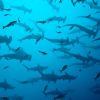 +15 +1
+15 +1Beware of 'Shark Week': Scientists watched 202 episodes and found them filled with junk science, misinformation and white male 'experts' named Mike
The Discovery Channel’s annual Shark Week is the longest-running cable television series in history, filling screens with sharky content every summer since 1988. It causes one of the largest temporary increases in U.S. viewers’ attention to any science or conservation topic.
-
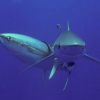 +14 +1
+14 +1Tuna Have Been Seen Rubbing Themselves Against Sharks And We Don't Blame Them
Imagine you're a big yellowfin tuna, miles from shore out in the blue, swimming around carefree, until you start to feel a little itch near your eye.
-
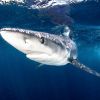 +14 +1
+14 +1The Sharks Are Back This Summer. We’re Not Ready for What That Really Means.
About 10 years ago, I saw a shark leap out of the water from somewhere near Beach 108th Street in Rockaway Beach, Queens. I had come out with friends to swim on a hot weekend day and just happened to be gazing out at the right moment. The shark breached, was airborne for a single second, and then landed with an inaudible splash about a mile from shore.
-
 +17 +1
+17 +1The Comforting Factoid About Sharks That’s No Longer True
Is it really possible to die by … vending machine?
-
 +1 +1
+1 +1Wholesale Sharks DOES IT AGAIN!
Real Estates biggest networking event
-
 +16 +1
+16 +1Tiger sharks move up north as ocean temperatures climb
Tiger sharks normally like to swim around the warm waters of Florida and the Caribbean. However, as the Earth’s ocean temperatures climb to new levels, they can begin to be seen as far north as New England. NBC’s Kerry Sanders reports for TODAY.
-
 +1 +1
+1 +1Wholesale Sharks makes huge announcement!
We are so confident that we can move your deals that we have changed our company
-
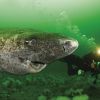 +4 +1
+4 +1Scientists Discover 400-Year-Old Greenland Shark Likely Born Around 1620
Researchers used radiocarbon dating of eye proteins to determine the ages of 28 Greenland sharks, and estimated that one female was about 400 years old. The former vertebrate record-holder was a bowhead whale estimated to be 211 years old.
-
 +11 +1
+11 +1Extinction: 'Time is running out' to save sharks and rays
Scientists say sharks and rays are disappearing from the world's oceans at an "alarming" rate. The number of sharks found in the open oceans has plunged by 71% over half a century, mainly due to over-fishing, according to a new study. Three-quarters of the species studied are now threated with extinction.
-
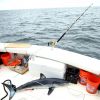 +16 +1
+16 +1Developing Coronavirus Vaccines Are Harming Shark Species
As vaccines candidates are being developed to cure coronavirus, some developers use squalene - an ingredient found in shark liver oil. Wildlife experts fear that millions of sharks may be killed if vaccine developers don't look for alternative sources.
-
 +17 +1
+17 +1Half a million sharks 'may be killed in effort to make Covid vaccine'
Around half a million sharks may be slaughtered in an effort to make a Covid-19 vaccine, wildlife experts have claimed. The top predators are harvested for squalene, a natural oil made in the liver of sharks, which is used medicine - including in current flu jabs.
-
 +4 +1
+4 +1Coronavirus: Half a million sharks 'could be killed for vaccine', experts warn
Sharks produce squalene, a natural oil made in their livers, which is an ingredient in several COVID-19 vaccine candidates.
-
 +14 +1
+14 +1Predator Bay
There is a place in Africa where two ancient predators come face to face - the shark and the crocodile. Usually worlds apart the two are forced to share the waters of a cozy bay and compete for the same prize. For many of the inhabitants this is a dangerous land. For a young crocodile life is particularly challenging. This is his story - a journey into predator bay.
-
 +18 +1
+18 +1Fossil upends theory of how shark skeletons evolved, say scientists
The partial skull of an armoured fish that swam in the oceans over 400m years ago could turn the evolutionary history of sharks on its head, researchers have said. Bony fish, such as salmon and tuna, as well as almost all terrestrial vertebrates, from birds to humans, have skeletons that end up made of bone. However, the skeletons of sharks are made from a softer material called cartilage – even in adults.
-
 +11 +1
+11 +1Grey reef sharks form long-term friendships, study reveals
Grey reef sharks work together and form social groups that can last for years, according to a study. Scientists who monitored a shark population off the remote Palmyra Atoll, to the south of Hawaii in the Pacific Ocean, noticed the predators formed tangled webs of social bonds.
-
 +16 +1
+16 +1As great white sharks disappear, Cape Town searches for answers
Cape Town residents don't know who to blame for the disappearance of their great white sharks, which haven't been seen this year in False Bay.
-
 +2 +1
+2 +1World's fastest shark added to list of vulnerable species to regulate trade
A record number of countries have voted to protect the world’s fastest shark from extinction in a move welcomed by conservationists as a “wake up call” for fishing nations who have ignored the endangered species’ decline.
-
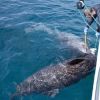 +23 +1
+23 +1Scientists catch ‘ancient’ shark believed to be up to 512 years old
Scientists believe they may have discovered the world’s oldest living vertebrate.
-
 +34 +1
+34 +1Scientist Just Identified a Tiny New Species of Shark That Glows in The Dark
We all know sharks have had a bit of an undeserved bad rap (thanks Jaws!). But if you're one of those people who find sharks scary, this newly identified species of pocket shark might just change your mind.
-
 +23 +1
+23 +1Reimagining the Megalodon, the World's Most Terrifying Sea Creature
When I reached the world’s pre-eminent sculptor of long-dead monsters, he was standing atop a ladder inside a 16-foot-tall section of a megalodon tail that was propped upright in his warehouse-size studio. “I’m sorry if it sounds like I’m inside a bathroom,” Gary Staab said on his cellphone. The tail was part of a 52-foot-long, life-size model of the prehistoric shark that Staab was custom-building for the Smithsonian’s National Museum of Natural History.
Submit a link
Start a discussion




















